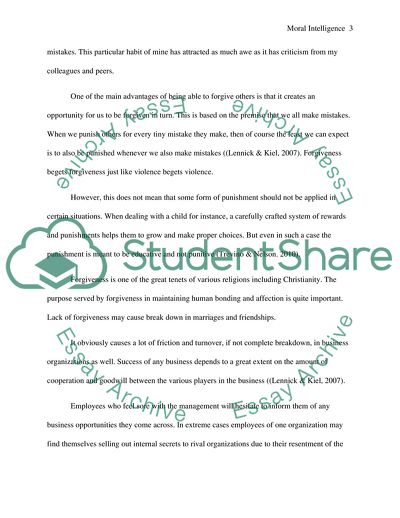Cite this document
(Moral Intelligence Development Essay Example | Topics and Well Written Essays - 1750 words, n.d.)
Moral Intelligence Development Essay Example | Topics and Well Written Essays - 1750 words. https://studentshare.org/human-resources/1744367-moral-intelligence-development-paper
Moral Intelligence Development Essay Example | Topics and Well Written Essays - 1750 words. https://studentshare.org/human-resources/1744367-moral-intelligence-development-paper
(Moral Intelligence Development Essay Example | Topics and Well Written Essays - 1750 Words)
Moral Intelligence Development Essay Example | Topics and Well Written Essays - 1750 Words. https://studentshare.org/human-resources/1744367-moral-intelligence-development-paper.
Moral Intelligence Development Essay Example | Topics and Well Written Essays - 1750 Words. https://studentshare.org/human-resources/1744367-moral-intelligence-development-paper.
“Moral Intelligence Development Essay Example | Topics and Well Written Essays - 1750 Words”. https://studentshare.org/human-resources/1744367-moral-intelligence-development-paper.


